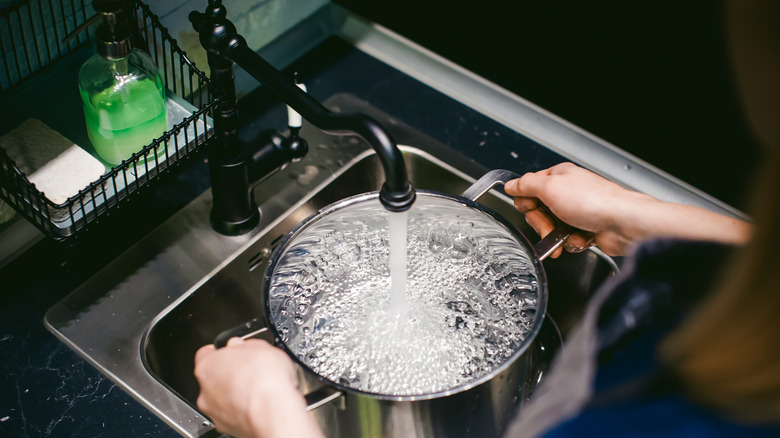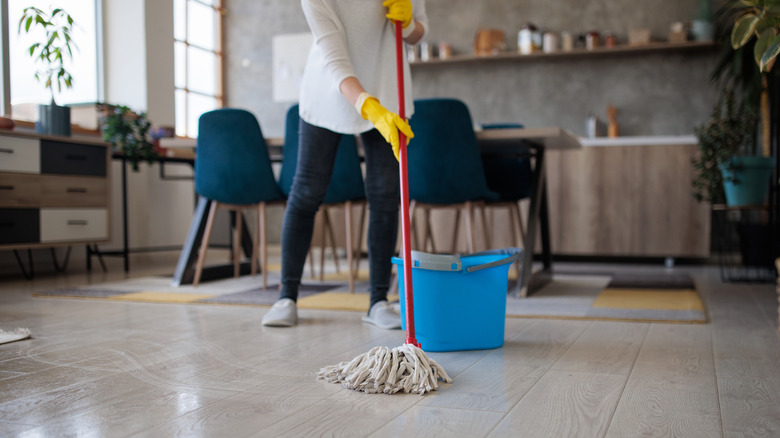Cleaning You Shouldn't Do Under A Boil Water Advisory (And What You Can Still Do)
There could be many reasons that your community goes under a "Boil Water Advisory." Natural disasters, burst pipes, power outages, or toxins in the water supply can all cause disruptions to your local availability of consumable fresh water. If your water treatment facility is unable to safely supply clean water to your area, you may be told you're under a boil water advisory. This means that the tap water is unsafe to drink and possibly hazardous for other uses, including some daily cleaning tasks.
If this happens to you, you will likely be instructed to boil your tap water for one to three minutes before cooling it to a safe temperature for use in place of untreated tap water. Even many types of water filters won't offer protection against unsafe water in these events. You may also be advised to disinfect your water or use bottled water in place of tap water for certain cooking and cleaning tasks. It will be important to follow your local health official's instructions carefully as every case may look different.
The main daily cleaning tasks you'll need to avoid with compromised tap water are washing produce, cleaning food preparation areas, brushing your teeth, and washing dishes by hand. Most dishwashers are still okay to use if they have a sanitizing cycle or if they rinse at a temperature of at least 150 degrees Fahrenheit. This is one time no one will judge you for using disposable dishes. If you have an infant or small children, be sure to use either boiled water or commercially bottled water (if available) for cleaning bottles, feeding supplies, and any baby or toddler toys.
What is okay to clean with tap water?
During a boil water advisory, it's generally considered okay to shower and bathe in unboiled tap water, but use caution not to ingest any of it. Take extra care with young children so they don't accidentally swallow any of the water. Sponge baths are a good way to reduce any unnecessary splashing. It's also considered safe to wash your hands with soap and tap water. The CDC encourages 20 seconds of washing followed by a thorough drying. If you're washing your hands to prepare food, however, it's still a good idea to use pre-boiled or bottled water.
Doing laundry during a boil water advisory should be just fine also. Nothing in the laundry goes directly into your mouth, so it's considered safe to go about laundry tasks as usual. Again, follow any specific instructions from your local health officials before proceeding as the reasons for boil water advisories can vary greatly.
Keep in mind that during a boil water advisory there may be a shortage of tap water. Mopping floors, cleaning toilets, and other household tasks that require minimal amounts of water are fine, but it's a good idea to avoid large water usage tasks such as car washing, power washing, or other chores that consume a lot of water. Boil water advisories may be as short as one day or could stretch on for weeks. It's good to be a conscientious community member at these times. You can always get back to your regular cleaning habits once the danger has passed.

